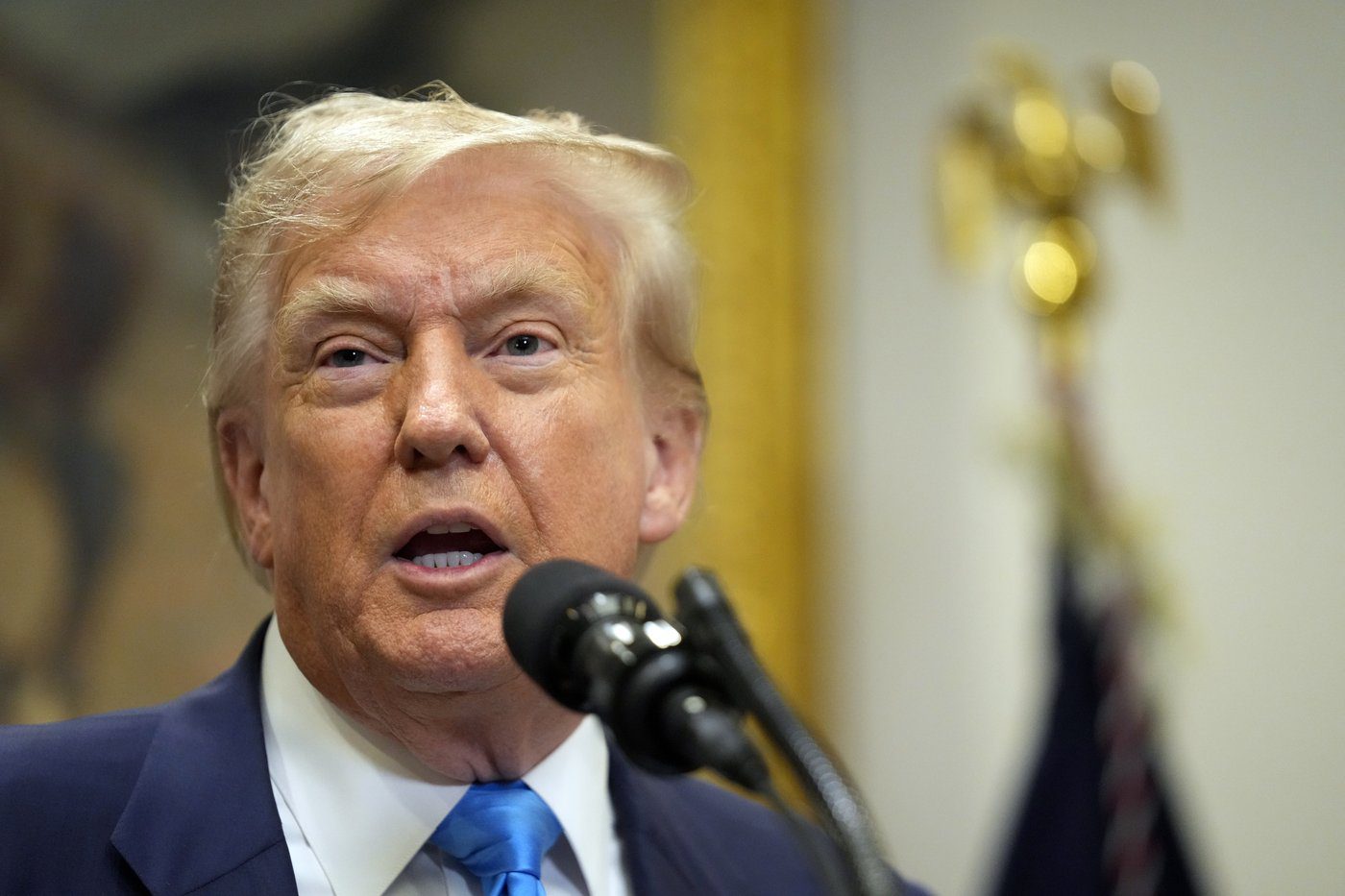WASHINGTON — Donald Trump dampened expectations of a deal with Canada materializing at the last minute as his tariff deadline loomed Thursday — but the U.S. president did give a 90-day deadline delay to Mexico.
In a post on social media early Thursday morning, Trump said it will be very hard to make a deal with Canada after Prime Minister Mark Carney announced Wednesday Ottawa intends to recognize a Palestinian state.
Trump previously sent a letter to Carney threatening to impose 35 per cent tariffs if Canada doesn’t make a trade deal by Friday. The White House has said those duties would not apply to goods compliant with the Canada-U.S.-Mexico Agreement on trade, better known as CUSMA.
In a separate social media post, Trump said he spoke with Mexico’s President Claudia Sheinbaum and agreed to extend Mexico’s trade deal deadline because the “complexities of a Deal with Mexico are somewhat different than other Nations because of both the problems, and assets, of the Border.”
Mexico already recognizes a Palestinian state.
Trump’s previous letter to Sheinbaum threatened 30 per cent tariffs. The Thursday post said the current 25 per cent fentanyl-related tariffs, as well as sectoral tariffs on steel, aluminum, copper and automobiles, will remain in place.
“Additionally, Mexico has agreed to immediately terminate its Non Tariff Trade Barriers, of which there were many,” Trump said. “We will be talking to Mexico over the next 90 Days with the goal of signing a Trade Deal somewhere within the 90 Day period of time, or longer.”
White House Press Secretary Karoline Leavitt did not rule out further extensions and said there was still time for countries to negotiate ahead of the midnight deadline. She said Trump will be signing executive orders to implement the new tariff rates later Thursday.
“I do know that other foreign leaders around the world have reached out,” Leavitt said.
While Trump continued to claim in posts on social media that tariffs are making “America GREAT & RICH Again,” the president’s main tool for realigning global trade faced some sharp questions from federal appellate judges in court Thursday morning.
The Trump administration’s lawyer argued in the U.S. Court of Appeals for the Federal Circuit that there are still checks and balances on the president’s powers and he has the authority to use a national security statute to impose duties — despite the fact that the word “tariff” is nowhere in the International Economic Emergency Powers Act of 1977.
The act, usually referred to by the acronym IEEPA, gives the U.S. president authority to control economic transactions after declaring an emergency. No previous president had ever used it for tariffs and the U.S. Constitution reserves power over taxes and tariffs for Congress.
Members of the 11-judge panel on Thursday repeatedly questioned the Trump’s administration’s justifications for using IEEPA, asking whether the law extended to tariffs at all and, if so, whether the levies matched the threat the administration identified.
“If the president says there’s a problem with our military readiness and he puts a 20 per cent tax on coffee, that doesn’t seem to necessarily deal with (it)” said Chief Circuit Judge Kimberly Moore.
Thomas Berry, with the Washington-based Cato Institute, said that “based on the tenor and questions of the arguments, it appears that the challengers have the better odds of prevailing.”
The Institute provided an amicus brief — a legal submission from a group that’s not party to the action — to the hearing.
No decision was issued from the bench Thursday.
In May, the U.S. Court of International Trade ruled in favour of a group of states and businesses pushing back on the devastating duties. It concluded that Trump does not have the authority to impose tariffs on nearly every country.
The Trump administration quickly appealed the lower court’s ruling on the so-called “Liberation Day” and fentanyl-related tariffs. Leavitt has said they expect the case to go before the Supreme Court.
— With files from The Associated Press
This report by The Canadian Press was first published July 31, 2025.
Kelly Geraldine Malone, The Canadian Press





